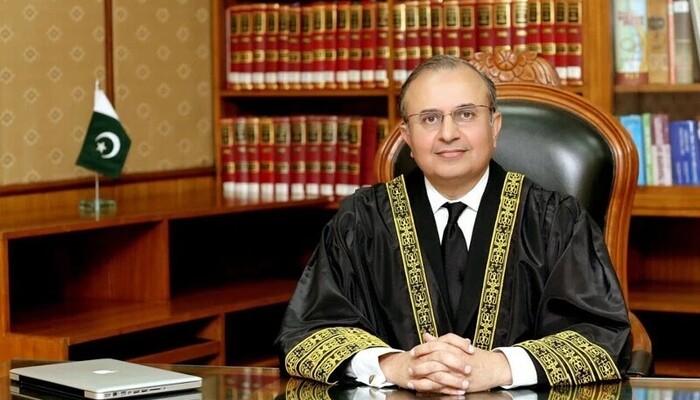
ISLAMABAD: Supreme Court senior puisne judge, Justice Syed Mansoor Ali Shah, has strongly raised serious concerns over the recent amendments to the Supreme Court’s Practice and Procedure Ordinance. In addition, in a three-page letter, he outlined his objections, addressing not only the substance of the changes but also the process by which they were enacted.
Justice Shah’s letter, addressed to the reconstituted committee, condemned the amendments. He criticized the PML-N-led government’s move to empower Chief Justice Qazi Faez Isa to form benches and assign high-profile cases to judges of his choice. These changes were made under the Supreme Court Practice and Procedure Act 2023.
Removal of Justice Munib Akhtar
One of the key issues raised by Justice Shah was the removal of Justice Munib Akhtar from the committee. He expressed alarm over the lack of explanation for this decision. Justice Shah emphasized that Justice Akhtar had been attending all meetings since March 2024 and, furthermore, was available to attend the most recent meeting as well.
Inclusion of Less Senior Judge
Justice Shah also voiced concern over the inclusion of Justice Aminuddin Khan, a less senior judge, in the committee. He labeled this move as “unfortunate cherry-picking,” warning that such selective decisions undermine democratic values and judicial fairness. The reconstituted committee now includes Justice Aminuddin Khan, but excludes Justice Yahya Afridi, who is senior to Justice Aminuddin.
Call for Collegial Decision-Making
Justice Shah underscored the importance of collective decision-making in the judiciary. He argued that the recent amendments erode this principle by concentrating too much power in the hands of the Chief Justice. “The concentration of administrative power in one individual contradicts democratic governance,” he wrote, referencing the Supreme Court’s ruling in the Raja Amer case.
Read More: Transforming Wealth: The Economic Evolution of Saudi Arabia
Lack of Parliamentary Debate
In his letter, Justice Shah questioned the necessity of the ordinance’s promulgation without parliamentary debate. He argued that there was no urgency requiring such immediate action and called for judicial review of the amendments. He urged that the amendments be debated in Parliament rather than imposed through an ordinance.
Full Court Meeting Requested
Justice Shah called for a full court meeting to discuss the ordinance. He highlighted the importance of independence, transparency, and collegiality within the judiciary. Any decisions made by the reconstituted committee, he warned, could undermine the credibility of the court and violate previous rulings.
Commitment to Judicial Independence
Justice Shah concluded by reaffirming his commitment to judicial independence. Moreover, he expressed his inability to participate in the committee’s meetings unless and until the constitutional validity of the amendments is determined by the Full Court Bench.
Justice Shah’s letter reflects growing internal tensions within the judiciary. His concerns about transparency and the balance of power raise important questions about the future of judicial independence in Pakistan.
Follow us on Google News, Instagram, YouTube, Facebook, Whats App, and TikTok for latest updates












